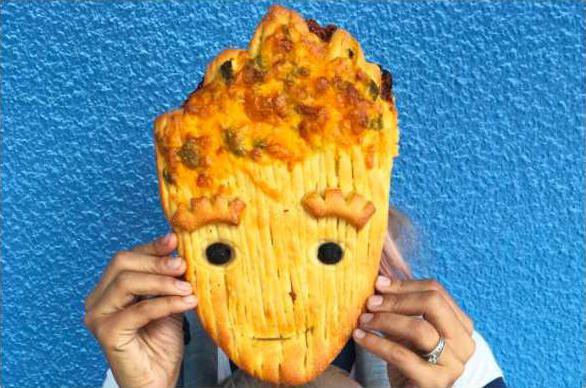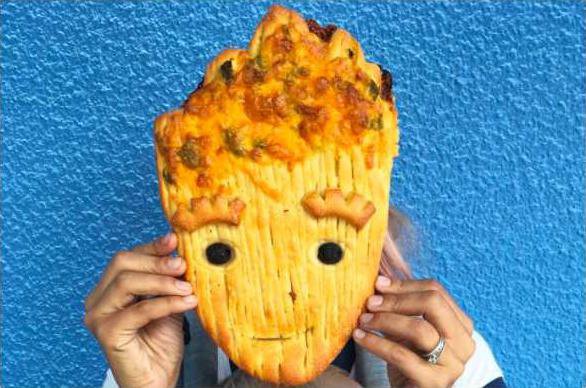Forget about your Unicorn Frappuccino. Theres a new trendy, odd food in town.
Vacationers at Disney California Adventure shared photos of a new piece of bread shaped like Groot, the silent yet deadly character from the Guardians of the Galaxy series.
The bread was released alongside the "Guardians of the Galaxy Mission: BREAKOUT!" attraction, which opened on Memorial Day.
The bread also comes with olive eyes and jalapeno-cheddar hair, according to Refinery29. It costs $8.50 for an entire slab.
Definitely a step up from the lobster, teddy bear, and even Mickey Mouse-shaped loaves that were previously available, the Groot bread is also more manageable in size. Instead of toting around a huge loaf, it's relatively snack-sized, according to Refinery29.
Travelers can buy the new snack at the Fairfax Market in California Adventure's Hollywood Land or at the Cosmic Canteen.
Journalists and media members shared sneak-peek footage of the ride after Memorial Day weekend, according to pop culture website Uproxx.
Vacationers at Disney California Adventure shared photos of a new piece of bread shaped like Groot, the silent yet deadly character from the Guardians of the Galaxy series.
The bread was released alongside the "Guardians of the Galaxy Mission: BREAKOUT!" attraction, which opened on Memorial Day.
The bread also comes with olive eyes and jalapeno-cheddar hair, according to Refinery29. It costs $8.50 for an entire slab.
Definitely a step up from the lobster, teddy bear, and even Mickey Mouse-shaped loaves that were previously available, the Groot bread is also more manageable in size. Instead of toting around a huge loaf, it's relatively snack-sized, according to Refinery29.
Travelers can buy the new snack at the Fairfax Market in California Adventure's Hollywood Land or at the Cosmic Canteen.
Journalists and media members shared sneak-peek footage of the ride after Memorial Day weekend, according to pop culture website Uproxx.








